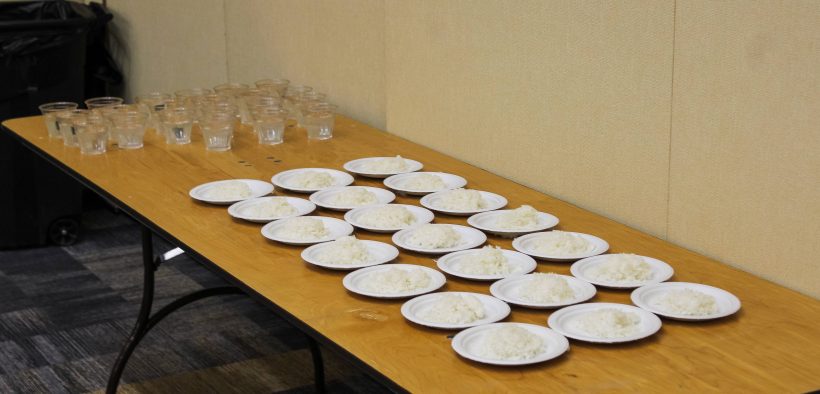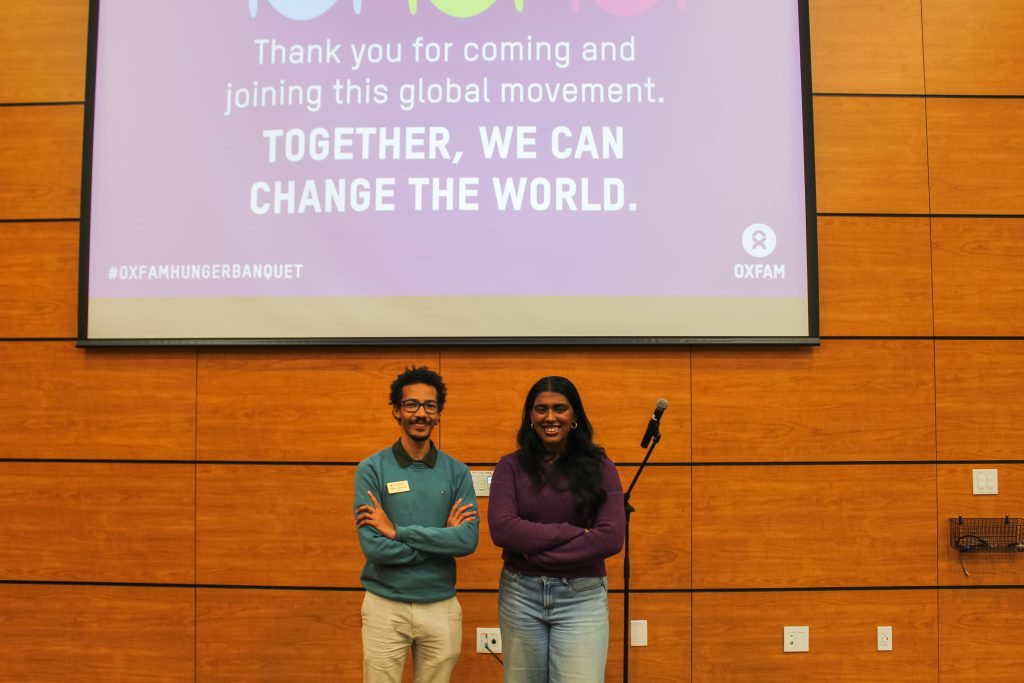Oxfam Hunger Banquet: Food Access Advocacy
Share

This Monday, Southwestern University hosted its very first Oxfam Hunger Banquet. The event, held by Dr. Gerald Jones and led Southwestern students Rebecca George ‘27 and Austin Gordon ‘26, marked the beginning of Social Justice Week. The Hunger Banquet is an event and interactive experience that was created by the Oxfam Foundation. Oxfam is a global advocacy group that aims to fight inequality, combat climate change, and raise awareness about the worldwide economic crisis.
Dr. Jones first brought the event to Southwestern after participating in a Hunger Banquet during his time at the University of Central Florida. In a time of both economic uncertainty and food insecurity, Dr. Jones holds a heavy belief in the relevance of advocacy towards an end to poverty and world hunger.
During his opening remarks, Dr. Jones emphasized, “In a time where millions of people across the country are losing access to food, his banquet could not have come at a better moment.” He references the current governmental dispute over the issuance of SNAP benefits to qualifying Americans.
For the past four decades, Oxfam has held several hunger banquets across the country. Oxfam operated under the initiative of “calling on companies and governments to change their policies to combat hunger and poverty.” As a line from the presentation stated, “Poverty is solvable— a problem rooted in injustice. Eliminate injustice, and you can eliminate poverty.” By creating an interactive experience for participants, Oxfam has highlighted those affected by food insecurity and poverty, making their experiences visible to those who want to help in an accessible way. Additionally, Oxfam has a free online toolkit for hosting anyone interested in hosting the event independently.

The event operates by randomly sorting the participants into three categories: high, middle, and low income. Each participant receives a card that contains their social class and the Oxfam-sponsored individual, as well as a QR code that allows them to read more about the individual and their life. The hosts give a rundown of each qualification of the social classes. Furthermore, the hosts read real-world scenarios comprised of experiences that allow some participants to move either up or down in their social class. The event is very interactive, as the seating positions and menu options differ in correspondence to one’s assigned social class. The event draws attention to the connection between gender inequality, climate change, and poverty as all being products of power.
Another line from the presentation stated, “Everyone on earth has the same basic needs; it is only our circumstances— where we live and the culture into which we are born— that differ.”
The Hunger Banquet served as a profoundly impactful and memorable occasion to commemorate the beginning of Social Justice Week. Hunger and poverty have been demonstrated to result in reduced life expectancies among affected populations. Advocating for access to food is inherently advocating for human rights, a fundamental liberty that should be universally accessible. As a junior student and co-host of the event, Rebecca George, remarked, “People need to eat.” Senior student and co-host, Austin Gordon, agreed, stating, “Glad to introduce this event to Southwestern. We hope that this brings awareness to local and global food insecurity.”
